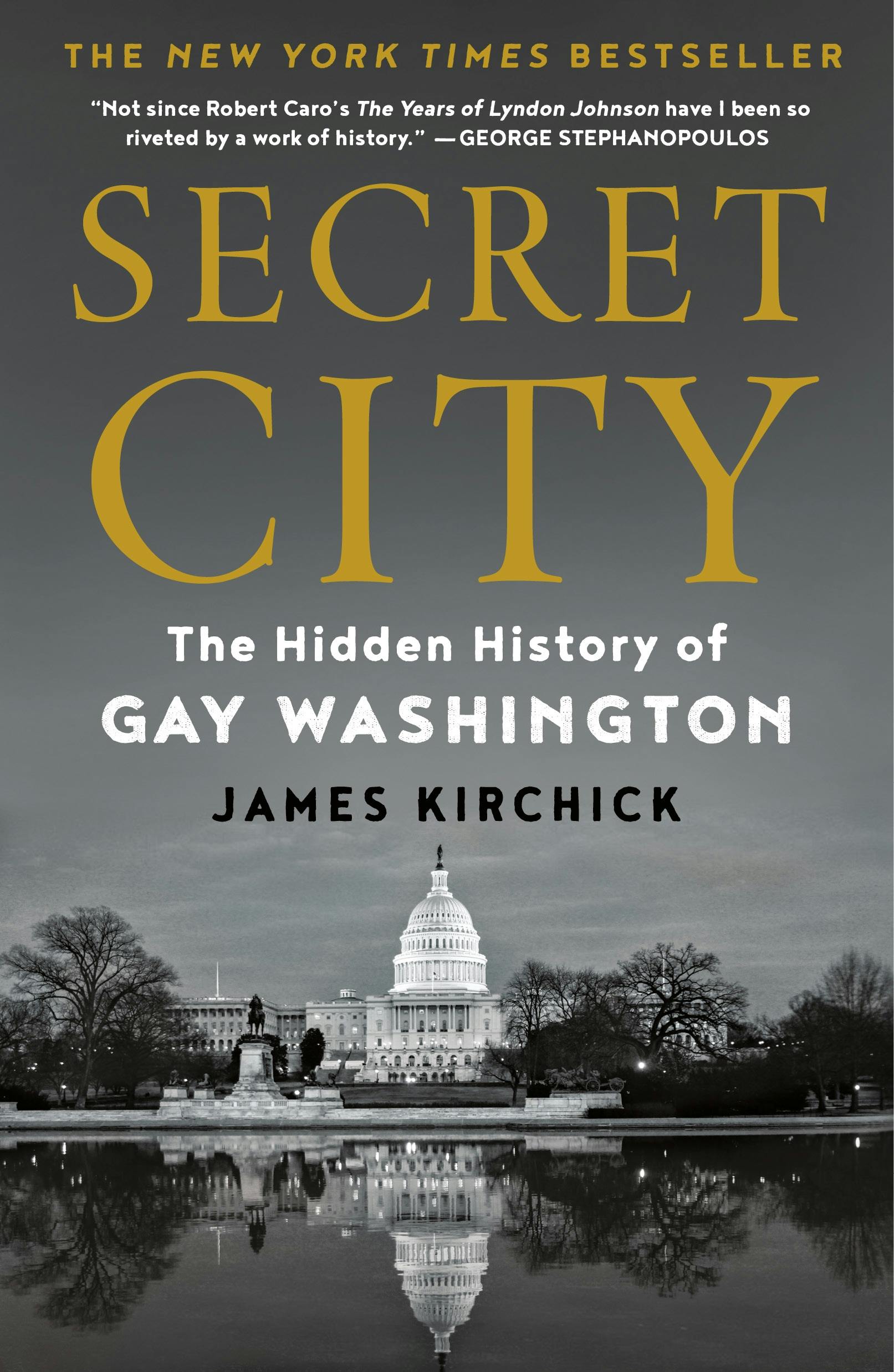Washington has long been a disproportionately gay city—a mecca for clever, ambitious young men who want to escape their hometowns’ prying eyes, who yearn for the company of other clever, ambitious young men, and who, having no families to support, can afford to work long hours as political staffers for modest pay. But it’s also a city that, from FDR to Bill Clinton—the period covered by James Kirchick’s fascinating new book, Secret City: The Hidden History of Gay Washington—was, as Kirchick puts it, “haunted” by “the specter of homosexuality.” Same-sex attraction, linked during World War II with Nazism and during the Cold War with Communism, could end a political career faster than any crime or heterodoxy.
If you wanted to survive, then, you needed to know how to manage two parallel lives at once. You needed stealth. You need to be an expert dissembler. If you slipped up—and even, sometimes, if you didn’t—you could face accusation, betrayal, scandal, ruin, and the contempt of people who considered you the lowest of the low. And every so often, you might be an object of surprising compassion and understanding. Take the case of Sumner Welles. In 1943, when diplomat William Bullitt told FDR that Welles, his undersecretary of state (and coiner of the phrase “no comment”), had been hitting on Pullman porters, FDR was livid—not at Welles but at Bullitt, whom he called “un-Christian” for his cruel gossip. Aware that if he didn’t act, the Pullman story would get out and wreak havoc, FDR requested Welles’s resignation, but only with great reluctance. A few years later, Harry Truman’s secretary of state, the sainted George C. Marshall, would handle a similar situation very differently. Informed about an employee’s homosexuality, he briskly ordered: “Fire the bastard.”
This is a book rich in ironies. Some of the people who brought down gays in Washington were gay themselves; some of those who ruined one gay person’s career went on to save another’s. FDR’s labor secretary, Frances Perkins, who firmly supported the ban on gays in government, lived with another woman in what was then known as a “Boston marriage.” Arthur H. Vandenberg Jr., who played a key role in Dwight D. Eisenhower’s election, was on track to be Ike’s appointments secretary but had to back off when the FBI uncovered his homosexuality. He saw the post go to one Robert Gray—who, coincidentally, was also gay. (The Johnson White House had its own version of this tale: LBJ wanted to give Hill staffer Bob Waldron, who was for him “something very close to a substitute son,” a job in the West Wing, but a background check put the kibosh on that, too.)
